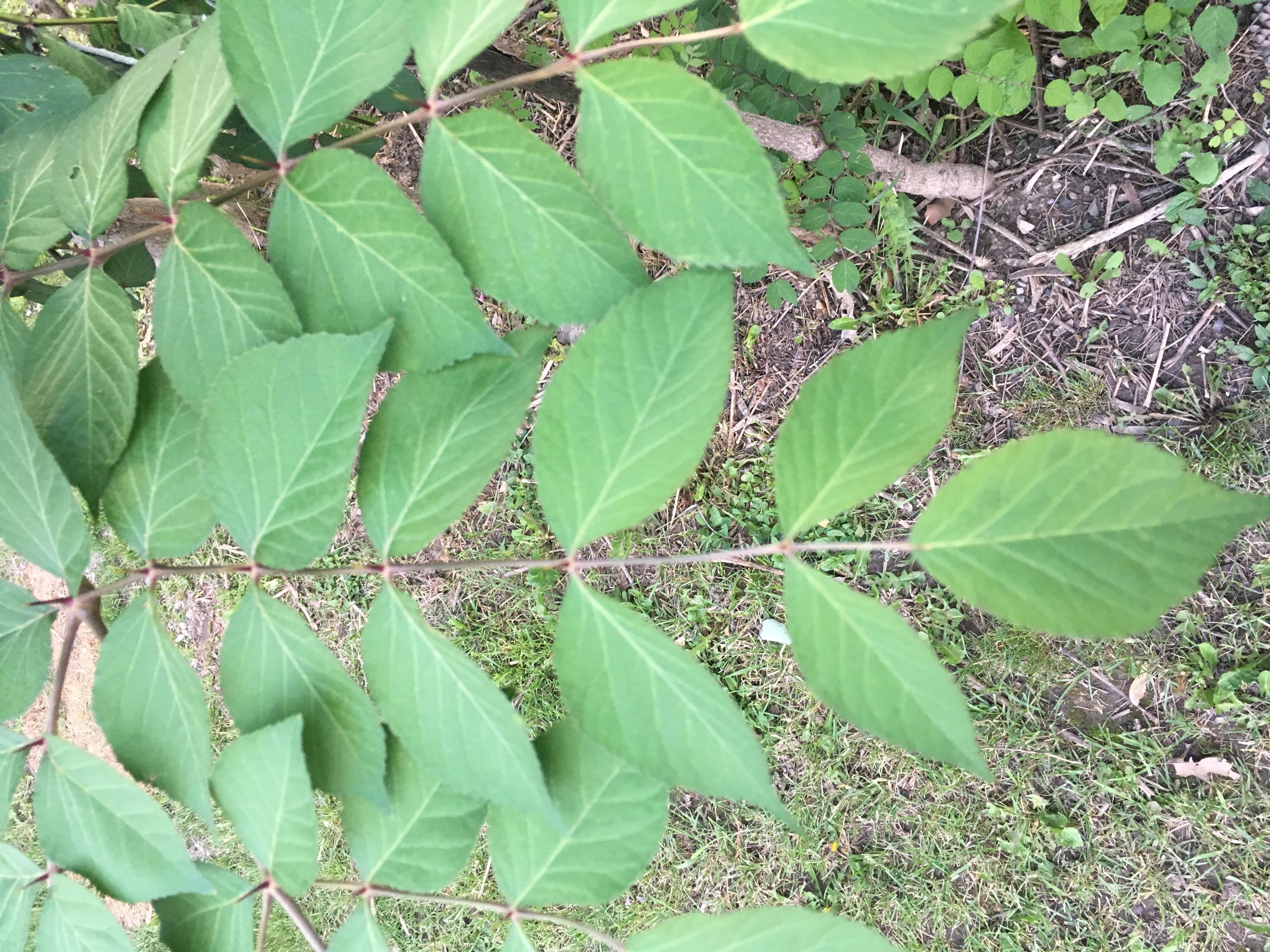Devil's Walking Stick
Aralia spinosa
Description
CAUTION: MAY HAVE INVASIVE TENDENCIES. Aralia spinosa, or devil's walking stick, is non-native to Ontario and ranges throughout the southeastern United States. It spreads aggressively through rhizomes, suckers, and is self-seeding, making it unsuitable for small spaces. It can tolerate a wide range of soils. While it prefers moist humusy soils, it will grow in rocky and clay based soils. It also tolerates urban pollution. Handling the plant can cause allergic skin reactions, and it is mildly poisonous if ingested. Regular removal of root suckers is necessary to control its spread. While it faces minimal pest or disease issues, it is susceptible to leaf spots and has large, sharp thorns on its stems. The plant is moderately messy, with seasonal fruit, leaves, and seeds dropping. Although it tolerates urban pollutants, it should be planted in sheltered areas to avoid wind damage.
Planting Site and Native Range
Planting Site
Highway, Residential, Wide Median, Restricted Urban Site
Tree Characteristics
Growth Rate
Fast (60cm or more per year)
Width
2 - 5m
Height
3 - 6m
Soil Quantity
0 - 10 m3
Leaves
Deciduous
Insects and Diseases
Insects and Diseases
No serious or common issues in the urban environment.
Tree Tolerances
Soil Salt Tolerance
Moderate
Salt Spray Tolerance
Moderate
Flooding Tolerance
Moderate
Drought Tolerance
High
pH Tolerance
Tolerant of acid to alkaline soil (5.0 to 8.0)
Shade Tolerance
Full Sun Part Shade
Plant Hardiness Zone
Zone 4 (a/b) | Zone 5 (a/b) | Zone 6 (a/b)
Management Notes
Management Notes
Large sharp thorns grow on stems and branches Can be trained into single or multi-stemmed tree
Contact us:
info@vinelandresearch.com








